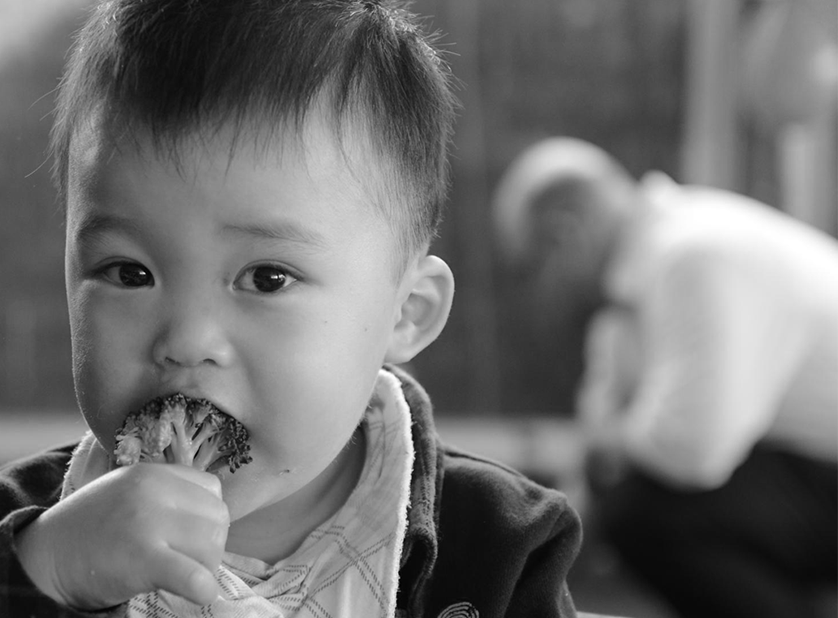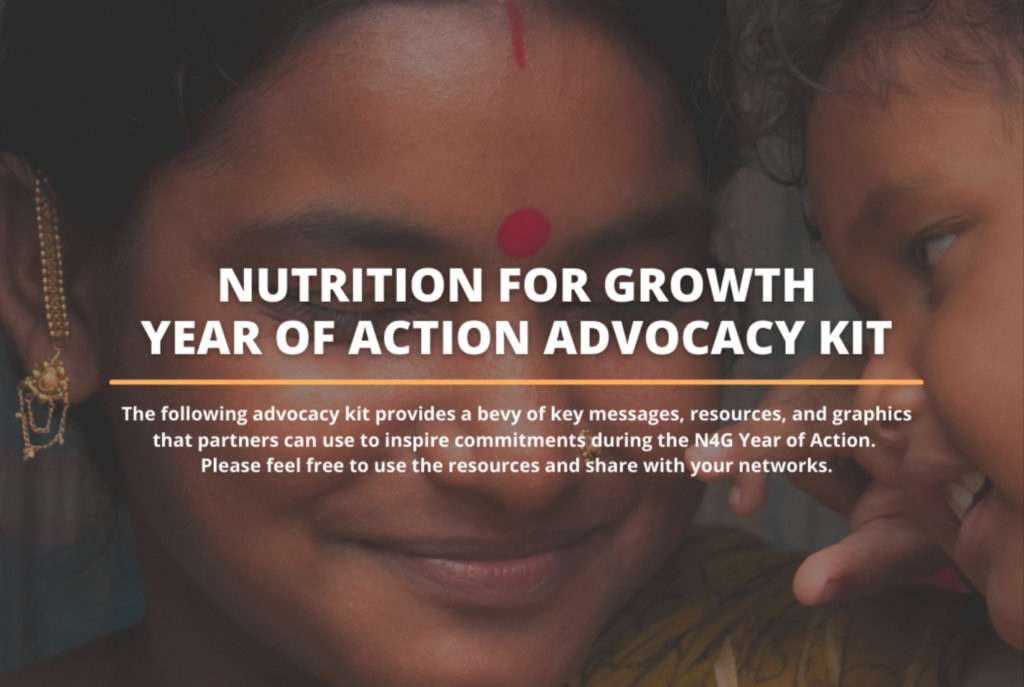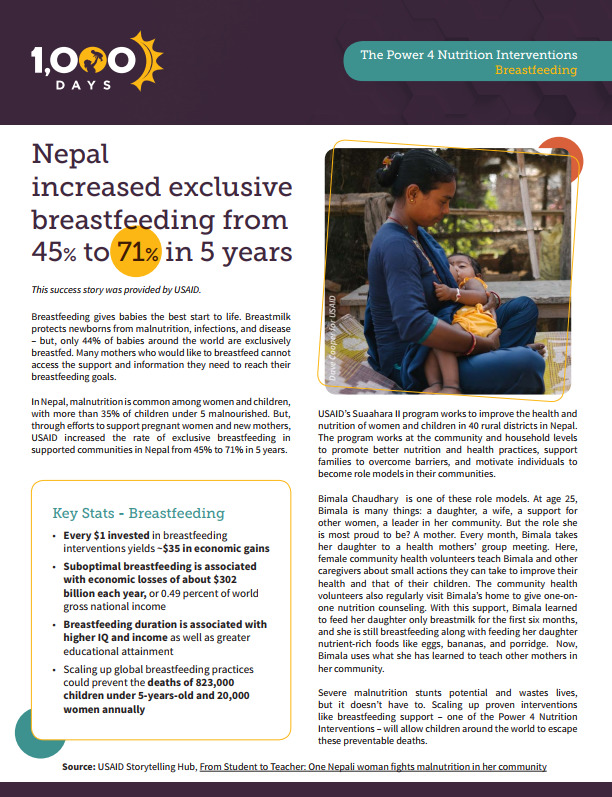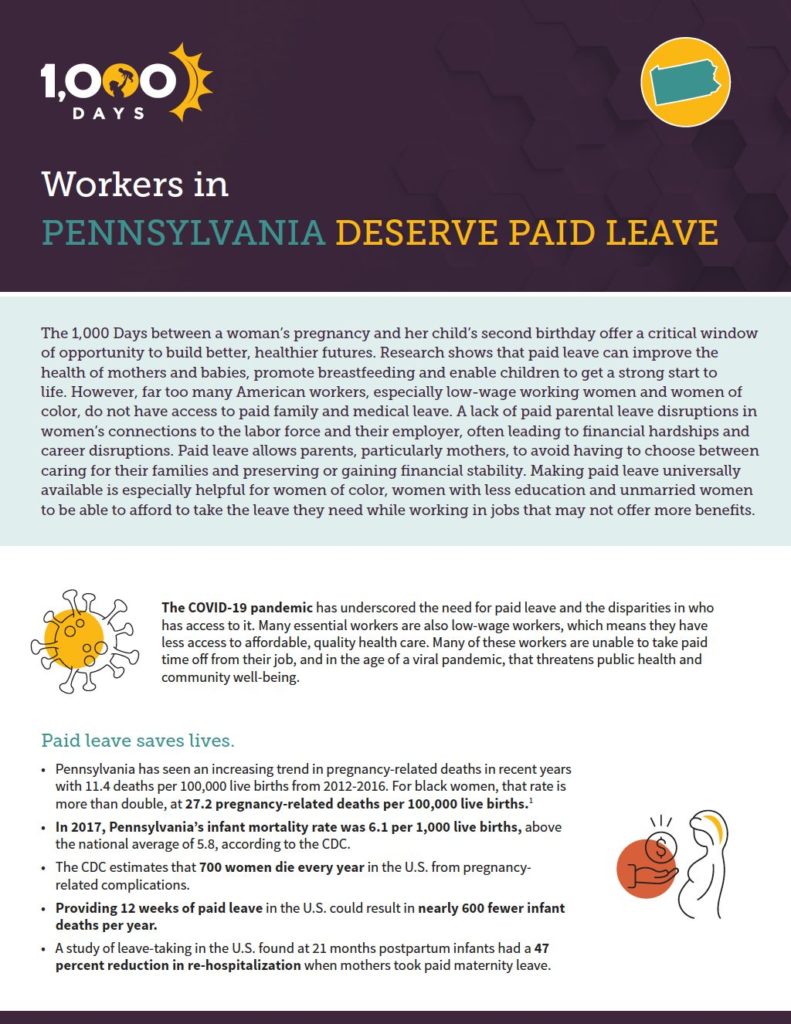Building Brains
Good nutrition during the first 1,000 days provides the building blocks for healthy brain development.
During the first 1,000 days, the brain grows more quickly than at any other time in a person’s life. Nutrition provides the fuel that drives much of this early brain growth and development. It provides the building blocks for a child’s cognitive abilities, motor skills and socio-emotional development, which in turn impacts her future success in school and economic opportunities later in life.
At every stage during the 1,000-day window, a child’s rapidly developing brain is vulnerable to poor nutrition, neglect and the “toxic stress” that comes along with hunger and food insecurity. The damage done to a child’s development can be profound and irreversible. It is why ensuring that women and children get the nutrition and support they need during the first 1,000 days is essential to a thriving future.

Pregnancy
Brain development begins before birth.
A child’s brain begins to grow very early on in pregnancy and develops at an astonishing speed. At the 4th week of pregnancy, the brain has an estimated 10,000 cells—by the 24th week, it contains 10 billion. The nutrition that a baby gets from his mother through her diet is the fuel that drives much of this incredible transformation.
Nutrients such as folic acid, iron, zinc and iodine, as well as protein and fatty acids play a vital role in building a baby’s brain during pregnancy. When one or more of these is absent during pregnancy, a baby could be at risk for developmental delays, birth defects and cognitive deficits. Because a pregnant person’s diet and nutrient stores are the only source of nutrition for a developing baby; therefore it is critical that people get the health care and nutritious food they need before and during pregnancy.

Infancy
When it comes to brain development, breastmilk is nature’s superfood.
Infancy is a time of remarkable brain development and growth. During this time, a baby learns how to interact and communicate with the world around her. Together with responsive relationships with their parents and other caregivers and safe, nurturing environments to explore, babies need good nutrition to fuel their growing brains.
Breastmilk is the perfect nutrition for brain development. It contains a variety of nutrients and proteins—as well as growth factors and hormones that cannot be replicated in infant formula—that are vital to a baby’s brain development. Numerous studies have shown that babies who are breastfed perform better in intelligence tests and have higher IQs scores as children and teens. Because it involves a great deal of mother-to-child touch and nurturing interaction, breastfeeding also plays an important role in strengthening a baby’s sensory and emotional circuitry, which are critical for both cognitive and socio-emotional development.

Early Childhood
Little kids need big nutrition to power their brains for learning.
As a baby transitions into toddlerhood, her brain continues to develop at a rapid pace. While a newborn’s brain is only one-quarter of the size of an adult’s, it grows to about 80% by age 3 and reaches 90% of adult brain size by age 5. In early childhood, the brain is busy forming connections that allow brain cells to communicate with one another, including connections in the brain’s language areas.
Growing brains need nutritious foods rich in iron, zinc and protein. Toddlers need meat and other iron-rich foods to avoid a deficiency in this key nutrient which in turn can impair their learning abilities and their behavior.
Pregnancy
Brain development begins before birth.
A child’s brain begins to grow very early on in pregnancy and develops at an astonishing speed. At the 4th week of pregnancy, the brain has an estimated 10,000 cells—by the 24th week, it contains 10 billion. The nutrition that a baby gets from his mother through her diet is the fuel that drives much of this incredible transformation.
Nutrients such as folic acid, iron, zinc and iodine, as well as protein and fatty acids play a vital role in building a baby’s brain during pregnancy. When one or more of these is absent during pregnancy, a baby could be at risk for developmental delays, birth defects and cognitive deficits. Because a pregnant person’s diet and nutrient stores are the only source of nutrition for a developing baby; therefore it is critical that people get the health care and nutritious food they need before and during pregnancy.
Infancy
When it comes to brain development, breastmilk is nature’s superfood.
Infancy is a time of remarkable brain development and growth. During this time, a baby learns how to interact and communicate with the world around her. Together with responsive relationships with their parents and other caregivers and safe, nurturing environments to explore, babies need good nutrition to fuel their growing brains.
Breastmilk is the perfect nutrition for brain development. It contains a variety of nutrients and proteins—as well as growth factors and hormones that cannot be replicated in infant formula—that are vital to a baby’s brain development. Numerous studies have shown that babies who are breastfed perform better in intelligence tests and have higher IQs scores as children and teens. Because it involves a great deal of mother-to-child touch and nurturing interaction, breastfeeding also plays an important role in strengthening a baby’s sensory and emotional circuitry, which are critical for both cognitive and socio-emotional development.
Early Childhood
Little kids need big nutrition to power their brains for learning.
As a baby transitions into toddlerhood, her brain continues to develop at a rapid pace. While a newborn’s brain is only one-quarter of the size of an adult’s, it grows to about 80% by age 3 and reaches 90% of adult brain size by age 5. In early childhood, the brain is busy forming connections that allow brain cells to communicate with one another, including connections in the brain’s language areas.
Growing brains need nutritious foods rich in iron, zinc and protein. Toddlers need meat and other iron-rich foods to avoid a deficiency in this key nutrient which in turn can impair their learning abilities and their behavior.



